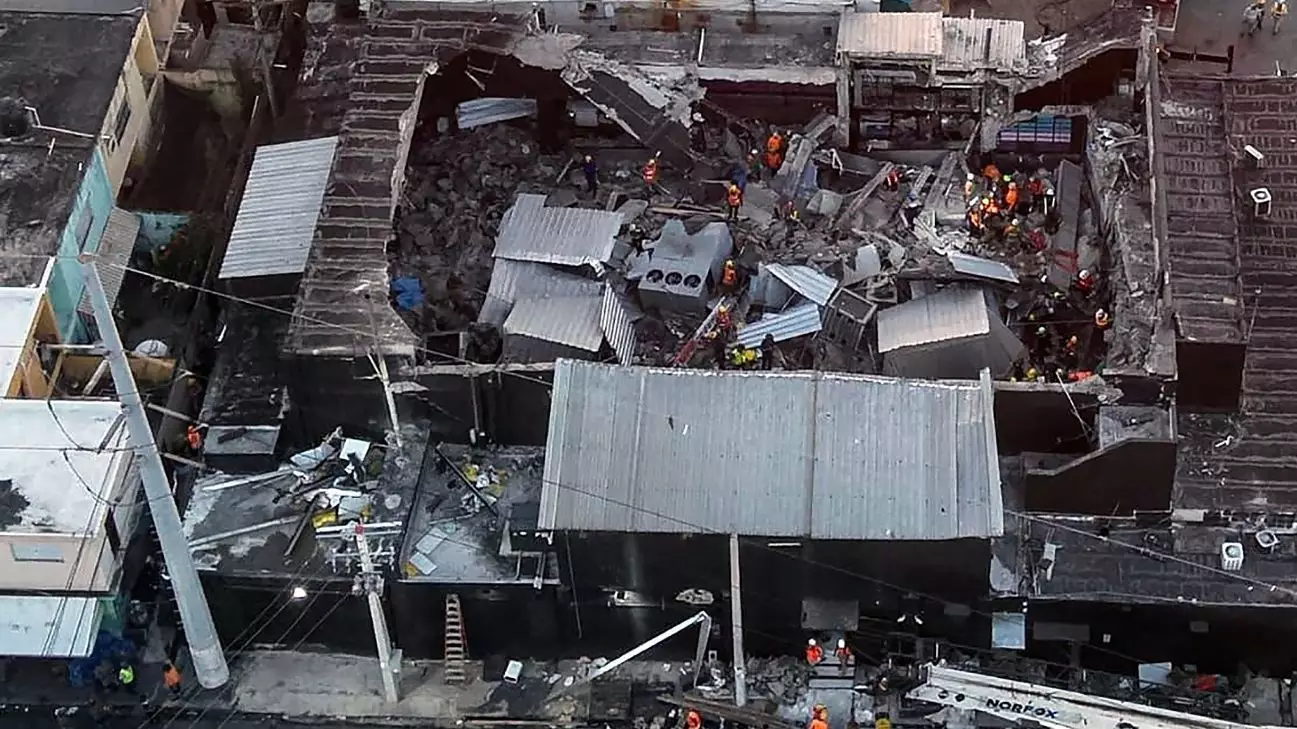In a shocking twist of fate, a vibrant night filled with music and merriment transformed into one of despair and heartbreak in Santo Domingo, Dominican Republic. The collapse of the iconic Jet Set nightclub claimed the lives of more than 70 individuals, including former Major League Baseball (MLB) stars Octavio Dotel and Tony Blanco. Such a tragedy not only rattles the local community but reverberates across the sporting world, illustrating the fragility of life and the unpredictable nature of fate.
The event, which unfolded during a lively merengue concert, drew a diverse crowd that included athletes, politicians, and local inhabitants eager for entertainment. However, as the clock struck 1 a.m., the joyous atmosphere quickly dissipated, plunging attendees into chaos and panic. The sheer number of casualties—79 confirmed dead and over 160 injured—paints a chilling picture of a night that many had anticipated with excitement, only to become marked by tragedy.
An Emotional Toll on the Baseball Community
The MLB community is no stranger to loss, yet the passing of figures like Dotel, Blanco, and Nelsy Cruz hits particularly hard. Commissioner Rob Manfred expressed profound sorrow, emphasizing that the bonds between baseball and the Dominican Republic are both historic and deeply rooted. This sentiment resonates broadly, as the nation continues to produce exceptional talent in the sport, bridging cultural divides and creating a familial atmosphere amongst players and fans alike.
Both Dotel and Blanco left their imprints on the game, contributing to the rich tapestry of baseball history with significant careers. Dotel, who rose from humble beginnings to become a successful relief pitcher, logged impressive stats over 15 years, while Blanco’s tenacity allowed him to reach the majors against the odds. Their stories are emblematic of the dreams that baseball inspires within the Dominican Republic—dreams that now carry an overwhelming weight due to their untimely demises.
Moreover, the heart-wrenching loss of Nelsy Cruz—the sister of beloved former All-Star Nelson Cruz—adds another layer of tragedy. The anguish felt by her family compounds the grief of the sporting world, illustrating how tightly woven community ties can amplify feelings of despair during such harrowing times.
Heroics Amidst Chaos: The Response Team’s Struggle to Rescue
While the lives lost are difficult to process, the scenes of chaos and heroism during the immediate aftermath of the collapse demand recognition. Rescue teams worked tirelessly, with first responders using heavy machinery and manual labor to sift through the rubble, desperately searching for survivors. The haunting noise of drills and the sight of firefighters laboriously lifting concrete blocks captured the sense of urgency and emotional weight of the situation.
President Luis Abinader’s on-ground presence and determined messages via social media underscore the governmental commitment to addressing the crisis. He assured families and the public that rescue teams were engaged in a “valiant fight” against the odds, striving to pull survivors from beneath the debris. This is a hallmark of resilience—an unyielding spirit that surfaces during dire times, instilling hope in despair.
But as rescue operations stretch into exhausting hours, the stark reality becomes evident. The question of what caused the tragic collapse lingers, provoking anger and demands for accountability from survivors and families. Such tragedies often prompt inquiries regarding building regulations, safety codes, and oversight that could have prevented such a disaster. The societal implications of this event may result in fundamental changes, not just within the Dominican Republic but globally, where safety of public spaces needs to be critically assessed and ensured.
A Shared Grief and Looking Toward Tomorrow
In times of tragedy, communities must find solace in shared grief, uniting in support for one another. The void left by luminaries like Dotel and Blanco cannot be filled; however, their legacies will continue to inspire future generations. Baseball has a unique capability to bring people together, and it is in this spirit of unity that healing begins. Whether through charity events, tribute games, or community support initiatives, the quest for collective healing can offer a glimmer of hope amidst the sorrow.
As the Dominican Republic grapples with the immediate ramifications of this disaster, the future remains uncertain. Nevertheless, if we can learn anything from our heroes, it’s that through adversity and tragedy, there churns a hope for renewal—a hope colored by the bright legacy of those we’ve lost.

